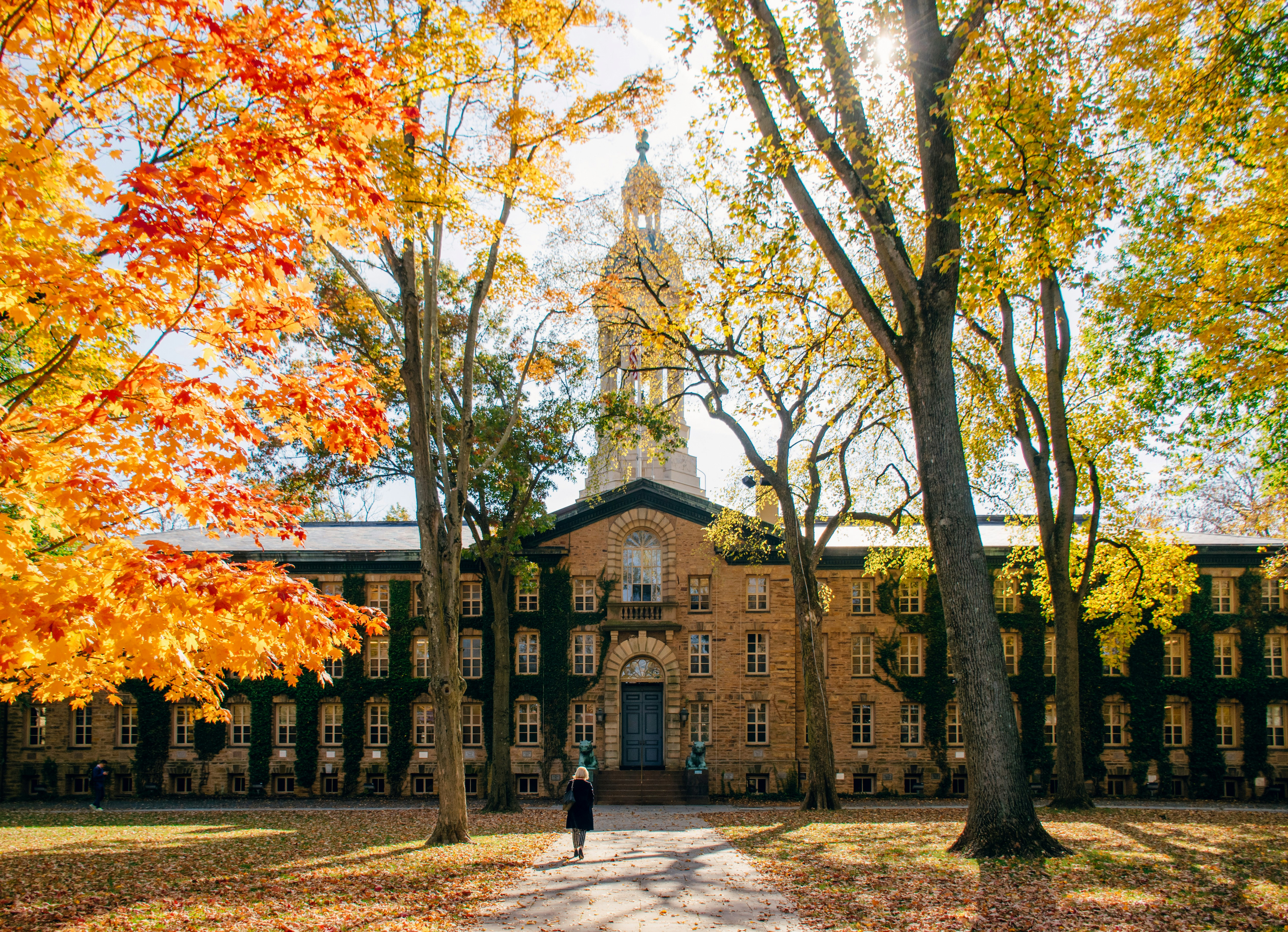

Applying to the Ivy League: Secrets of a Successful Application
Getting into an Ivy League university is a dream for many high school students around the world — and it's an undeniably ambitious one. These schools are known not only for their academic excellence and career opportunities but also for their extremely competitive admissions: dozens, sometimes hundreds, of outstanding candidates compete for each spot.
The Ivy League includes eight of the oldest and most prestigious universities in the United States:
- Harvard University (Cambridge, Massachusetts)
- Yale University (New Haven, Connecticut)
- Princeton University (Princeton, New Jersey)
- Columbia University (New York, New York)
- University of Pennsylvania (UPenn) (Philadelphia, Pennsylvania)
- Dartmouth College (Hanover, New Hampshire)
- Brown University (Providence, Rhode Island)
- Cornell University (Ithaca, New York)
However, even with top grades, impressive test scores, and a long list of extracurricular achievements, not every applicant receives the coveted acceptance letter. Why? Because a successful Ivy League application is much more than just strong academics and activities — it’s a carefully crafted combination of factors that together create a unique and memorable applicant profile.
In this article, we’ll take a closer look at what sets successful Ivy League applications apart. We’ll break down academic requirements, explain how to build an impactful extracurricular portfolio, and share real advice from students who have earned admission to these elite universities.
Contents:
- Admission requirements: what you need to know
- Extracurriculars: quality over quantity
- Common mistakes applicants make
- How to build a winning application: proven advice
Admission Requirements: What You Need to Know
The Ivy League admissions process includes many components, each playing a role in the final decision. Below are the key factors admissions committees carefully consider.
Academic performance
A high GPA serves as a kind of baseline threshold for applicants. Most admitted students have a GPA in the 3.8–4.0 range (on a 4.0 scale), with consideration not only for the final grade but also for the rigor of coursework. Admissions committees value applicants who challenge themselves with advanced courses such as Advanced Placement (AP), International Baccalaureate (IB), Honors classes, or Dual Enrollment programs — all of which demonstrate readiness for college-level academic demands.
Standardized tests
While many U.S. universities adopted test-optional policies in recent years, several Ivy League schools are now reinstating standardized test requirements. Beginning with the 2025 admissions cycle, Harvard, Yale, Dartmouth, and Brown have once again made SAT or ACT scores mandatory.
Even if your chosen school remains test-optional, strong test scores can still give your application a competitive edge. Admitted students typically score in the top 1–5% of test-takers nationwide.
Personal essay
The personal essay is one of the most critical parts of the application. It offers a chance to showcase your individuality, life experiences, motivation, and mindset. A strong essay is not a simple restatement of your résumé but an authentic and personal narrative that allows the admissions committee to truly understand who you are.
Letters of recommendation
Letters from teachers and school counselors should not only highlight your academic achievements but also speak to your personal qualities: intellectual curiosity, initiative, leadership, teamwork, and resilience.
Interviews
Not all Ivy League schools require interviews, but most offer optional or recommended interviews, often conducted by alumni. While interviews are rarely the deciding factor, a positive interview can strengthen your application.
For example, Harvard, Yale, and Princeton typically organize alumni interviews. These interviews are not mandatory — declining one will not harm your application. However, if given the opportunity, a strong interview can work in your favor.
Personal qualities
Finally, what truly sets successful candidates apart are the personal traits that admissions committees seek: intellectual passion, leadership potential, a commitment to community, clearly defined interests and goals, and the ability to make meaningful contributions to the campus and beyond.
Extracurricular Activities: Quality Over Quantity
One of the biggest myths about Ivy League admissions is the belief that success requires maximum involvement: "the more clubs, organizations, and activities, the better." In reality, admissions committees prioritize depth and meaningful engagement over sheer volume. What truly matters is demonstrating genuine passion, initiative, and impact.
Focus on interests and passion
Admissions officers closely review extracurriculars to understand who you are as a person. The strongest candidates don’t spread themselves thin across dozens of activities; instead, they focus on two or three areas where they achieve notable accomplishments. These may include:
- academic research
- high-level athletics
- musical achievements
- volunteer and community service projects
- entrepreneurial ventures
- artistic projects
- competitions and academic Olympiads
For example, a student who founded a nonprofit organization to support the homeless demonstrates leadership, social responsibility, and long-term commitment — exactly the kind of qualities Ivy League schools value.
Depth of involvement
Simply showing up to a club isn’t enough. Taking on leadership roles is a key factor. Leading a club, organizing events, or launching personal projects showcases maturity, teamwork, and the ability to take initiative.
For instance, participating as a staff writer for the school newspaper is great — but serving as editor-in-chief adds significantly more weight to an application.
Community impact
Admissions committees also look at how applicants contribute to those around them. This may include organizing charity events, mentoring younger students, or participating in environmental initiatives. Universities seek students who will actively enrich their campus communities.
Unique pursuits
Having unique interests or an unconventional personal journey can help an applicant stand out. This might include writing a book, launching a startup, or achieving success in a niche field. Of course, “unique” and “unconventional” pursuits should remain within the boundaries of socially appropriate activities.
A strong portfolio
It’s important to present your accomplishments clearly and effectively in your application. In the Activities section of the Common Application or Coalition Application, you should briefly but specifically describe your role, contributions, and outcomes. When possible, include supporting materials such as publications, portfolios, or project links.
The Most Common Mistakes Applicants Make
1. Information overload
Known as “TMI” — too much information. Don’t overwhelm the admissions committee with unnecessary documents. Submitting eight recommendation letters, every certificate you’ve earned since third grade, or a pile of minor school newspaper articles won’t impress anyone — it only makes your application harder to evaluate.
2. Overreliance on GPA and standard activities
A perfect 4.0 GPA no longer guarantees any real advantage, as grade inflation has made top grades increasingly common. Admissions officers look beyond GPA to course rigor, individual achievements, and personal qualities.
3. Providing false or misleading information
Any dishonesty — whether exaggerating volunteer hours, courses taken, or awards received — will likely result in immediate rejection if discovered. Be completely honest and never try to mislead the admissions committee.
4. Creating “artificial” passion projects
Passion projects are meant to reflect genuine interests and meaningful involvement. When done right, they can strengthen your application; when done purely for admissions purposes, they often backfire. Examples of poorly executed passion projects include:
- a quickly thrown-together blog launched three weeks before submitting your application
- a “paper” volunteer project that doesn’t create any real impact
- a research paper written just to check a box
Admissions officers can easily tell the difference between a thoughtful, long-term project driven by true interest and a last-minute activity designed to impress.
5. Spelling, grammar, and punctuation mistakes
Even if English isn’t your first language, you’re still expected to demonstrate a strong command of it. Always go the extra mile: ideally, have a native speaker review your application for errors in grammar, word choice, and punctuation.
6. Ignoring each school’s specific requirements
Mistakes in submitting documents, failing to follow essay prompts, or neglecting school-specific application sections can lead to automatic rejection.
7. Poorly written personal statement
Your essay should reflect your individuality, values, and motivation. Generic or overly edited essays lose authenticity and fail to leave a strong impression.
How to Build a Successful Application: Proven Advice from Ivy League Admits
1. Start preparing as early as possible
Yes, it’s basic advice — but it’s absolutely critical.
Ideally, you should start serious preparation as early as 9th or 10th grade. This allows plenty of time to build strong academic credentials and prepare for standardized tests like the SAT or ACT.
Don’t procrastinate on your application either. Begin with your personal statement, which often takes much longer than expected — not only to write, but to brainstorm, revise, and polish.
Once your main essay is solid, you can focus on school-specific supplements for your target and safety schools, which are also time-consuming. Aim to have your main essay mostly done by July, but don’t rush — quality matters more than speed.
Many Ivy League admits recommend having the entire application ready by November 1.
2. Seek help from mentors
Mentors — especially Ivy League alumni — can provide valuable guidance, help you build a strategy, offer emotional support, and catch mistakes early. Ideally, you’ll find someone in your personal network who has attended a top U.S. university and understands the admissions process.
If that’s not possible, consider using professional services such as Project Access. While private consultants can be expensive, they may improve your odds: according to Top Tier Admissions, 95% of their clients are admitted to one of their top two schools.
3. Manage stress
Easier said than done — but a few practical tips can help reduce anxiety:
- A well-planned schedule and early preparation help avoid last-minute panic.
- Break the process into small, realistic tasks to maintain balance and peace of mind.
- Emotional support is crucial — don’t hesitate to lean on family and friends during the process.
4. Read successful essays
Review real essays from students who were admitted to gain a sense of tone, structure, and content. Some helpful resources include:
- Essays That Worked by Johns Hopkins
- 50 Successful Ivy League Application Essays (Brooklyn Tech HS)
Important: Don’t copy the writing style — use these examples to understand what a strong essay looks like.
5. Prepare for interviews
Do a bit of research on who might be interviewing you — usually local alumni, and often the same people conduct most interviews year after year. This isn’t about “stalking,” but rather gathering some basic background to help with small talk and show genuine interest. In many cases, interviewers submit a recommendation after your conversation, so preparation can definitely help strengthen your application.
Need detailed guidance?
Experts at ED-EX.com will assist you at every stage of the application process — from choosing a university to preparing documents.
You can submit a request in any convenient way:
— directly in your personal account
— on the page of your chosen university
— or by emailing us at support@ed-ex.com
All About Education Abroad and Beyond


How do I apply for a Bachelor's degree through ED-EX.com?


